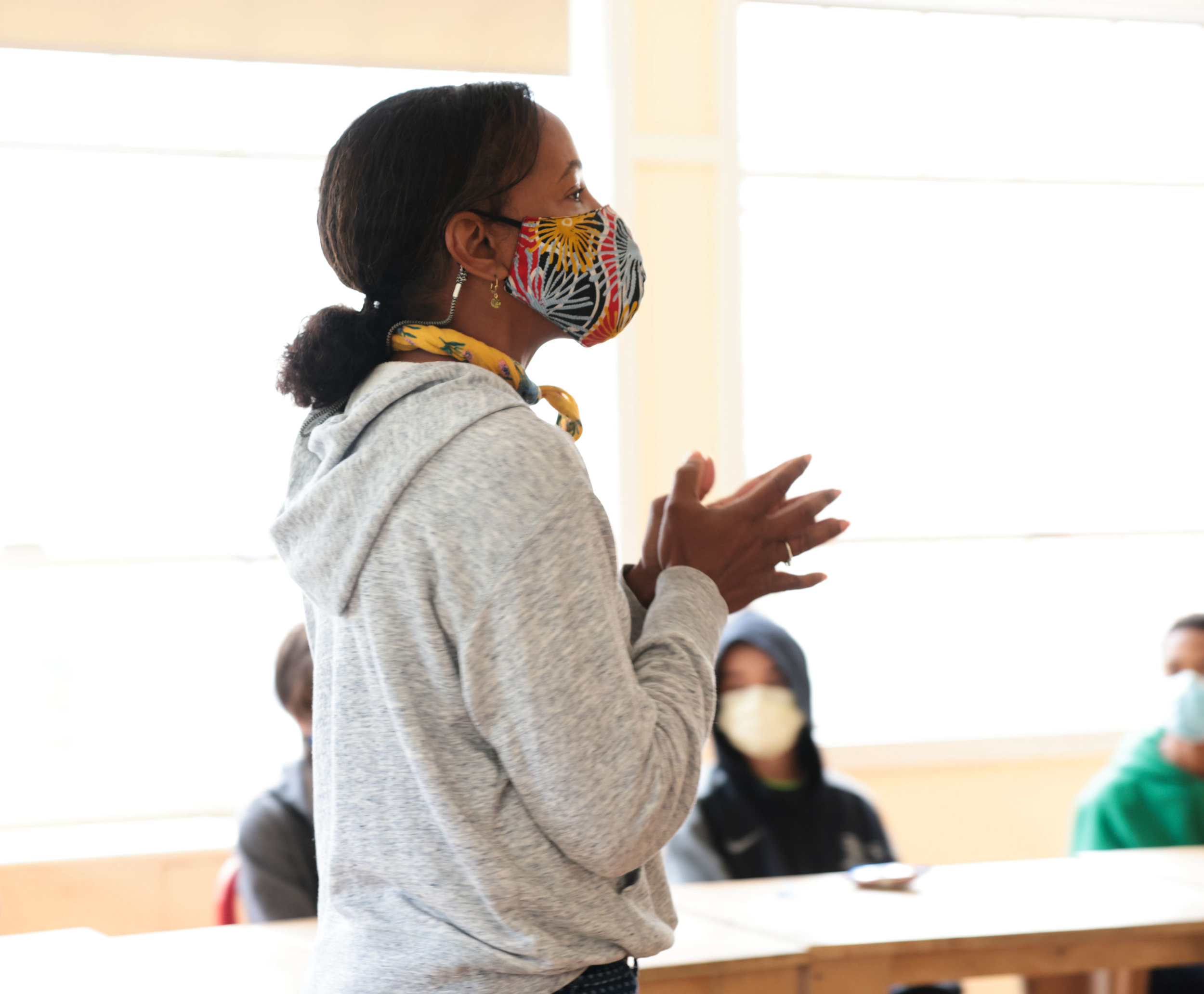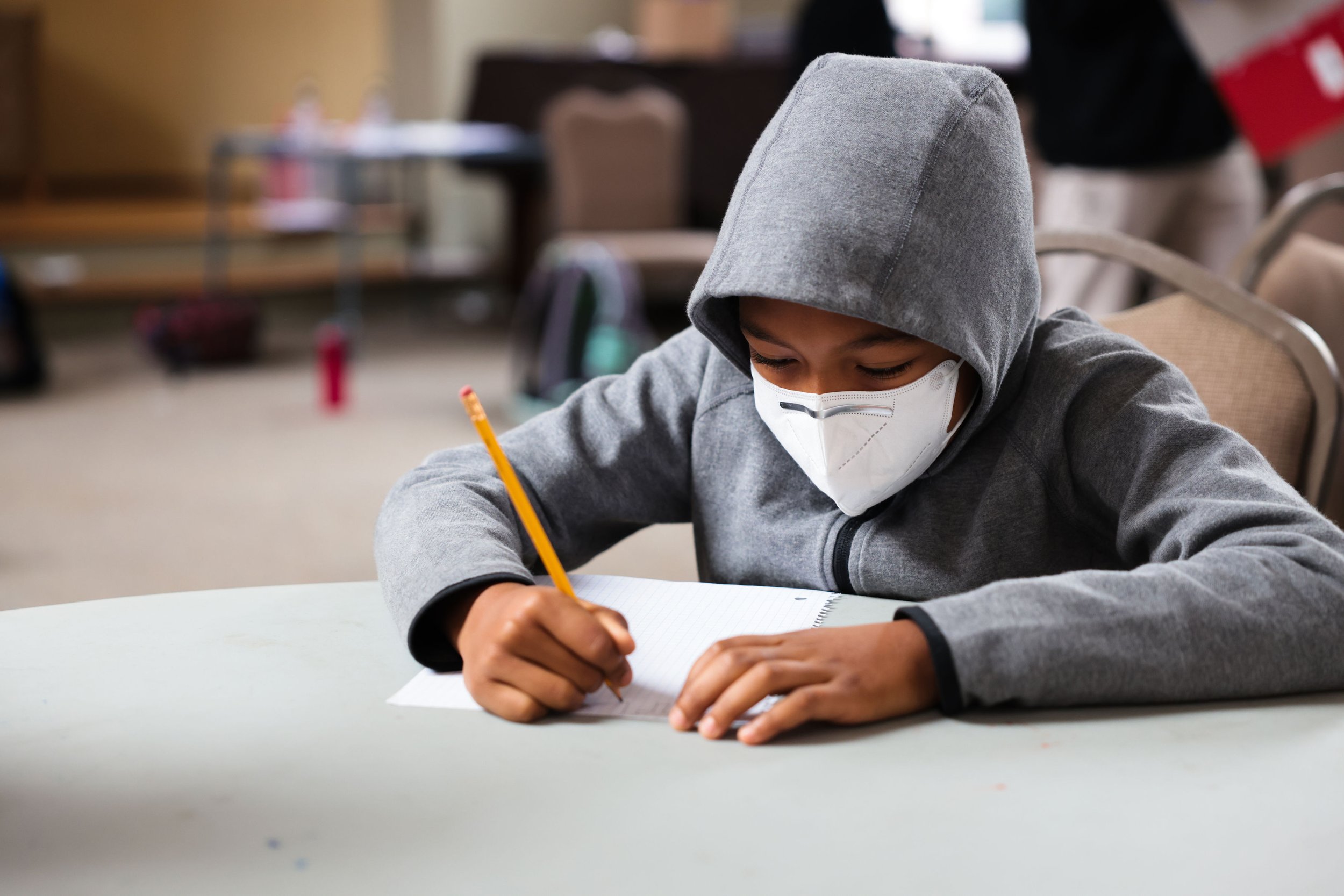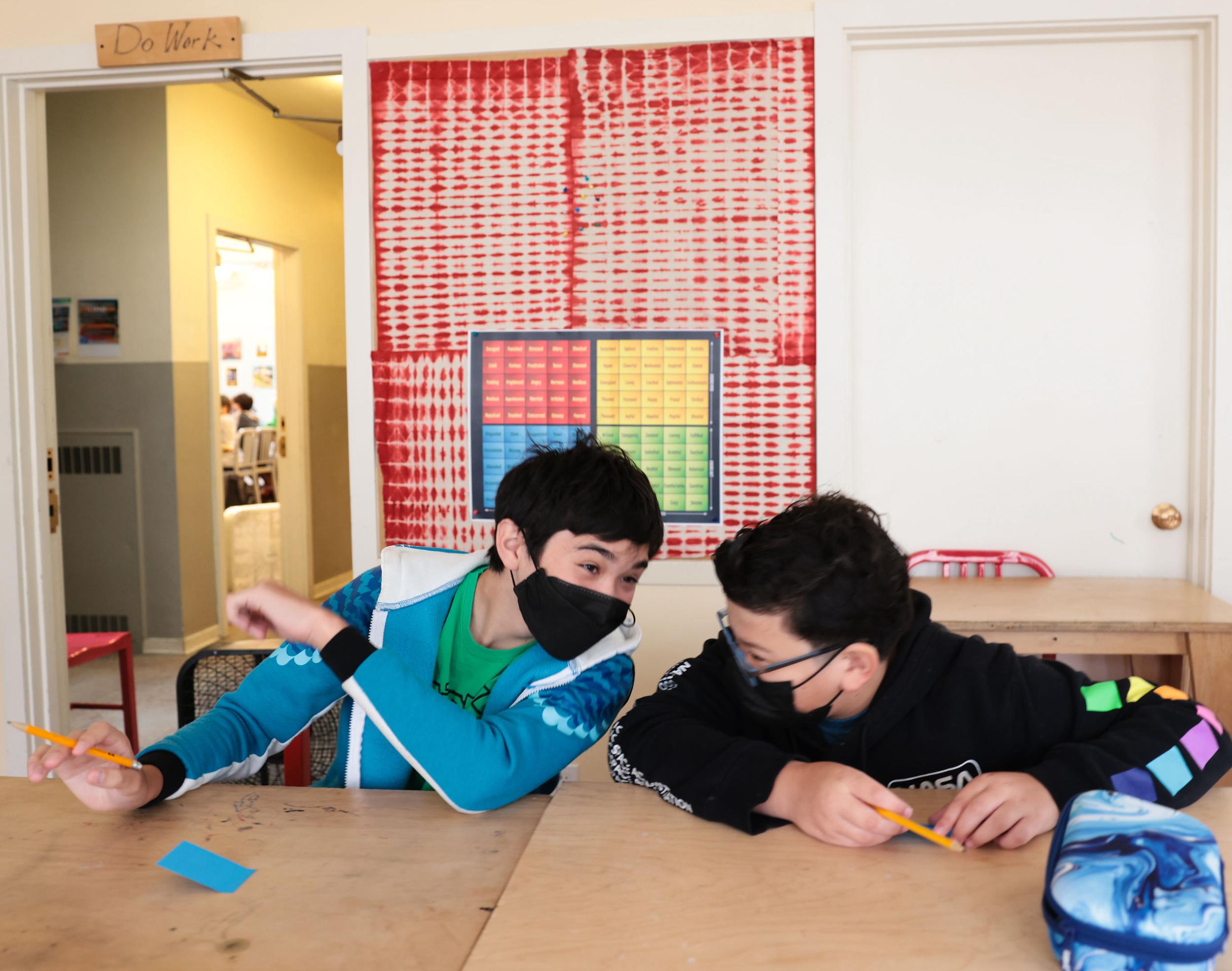ACADEMICS
At EBSB we call academics “prep.” The prep encompasses traditional academic courses taught primarily through hands-on project-based, cross-curricular course work, exploration of identity, social justice, and core academic skill building. This is done explicitly in preparation for high school and through the lens of global citizenship. The prep is an inquiry- and discovery-based, experiential process engaging the whole student through coaching, practice, and presentation. Prep takes the National Common Core Standards and creates diagnostics, lessons, assessments, and opportunities of student self-reflection, all of which create a classroom of engagement, a place where boys do not just come to be fed information, but instead to feast and savor what the learning community has to offer and develop their own critical ideas and assertions for others to consider and partake. Our intent is not only to prepare boys for high school but also for life through fostering their curiosity and ability to recognize their own academic strengths and challenges. EBSB students will grow to stand out as particularly engaged, thoughtful and courageous young adults in their communities.
An EBSB graduate should be well prepared to demonstrate proficiency in Language Arts (by being ready to read and write in persuasive, expository, narrative, and descriptive forms) in social studies (by being ready to take world history or civilization); in math (by being ready to take algebra 1, algebra 2, or geometry); in science (by being ready to take biology, with a laboratory component); and in Spanish (by being ready to take second-year Spanish or the first year of a different language). A teacher’s job is to give them the experiences to practice building their mental, social, and physical capacity through drill and challenge, and to provide them with space to take those capacities to solve problems, imagine and create.
We believe in high expectations for our students and want our students to strive to meet their potential in all areas of our program.
We believe that in order for all of our students to reach their potential, teachers will examine their practice through professional reflection and evaluation, students will reflect on their performance with teachers and advisors to review and improve their performance, and the school and families need to communicate with each other in a straightforward, thoughtful, and clear way about needs, successes, and challenges.
We believe a student’s approach to their learning is as important as their understanding of content.
We believe that work should be meaningful, of high quality, tied to a standard/objective, and play a part in a larger concept or project (not busywork or seatwork).
We believe that rubrics help teachers understand learning outcomes and grading metrics and help students reach high expectations.
We believe that our students need feedback, as well as grades, that are timely, abundant, and clear.
We believe that families should be informed with both quantitative measurements for progress and qualitative summaries.
We believe that assessments should reflect what students know and understand, as well as their participation and effort in their assignments.
We believe that sometimes we cannot be 100% sure of what a student knows until they’ve been given a chance to apply it; evaluation may be an ongoing process and we should include a variety of data-gathering assessments.
We believe in building student independence by providing adequate support and appropriate challenges.





